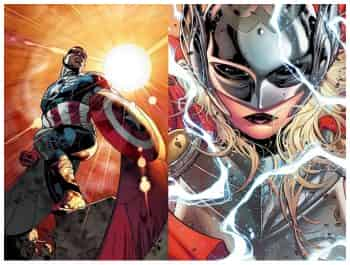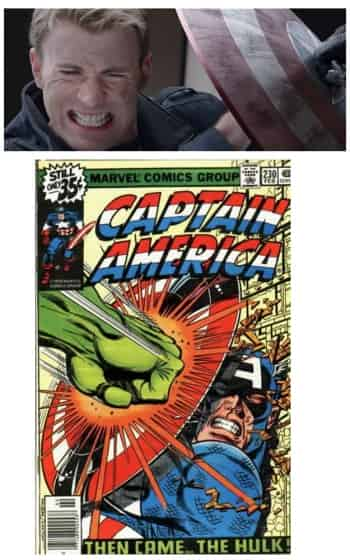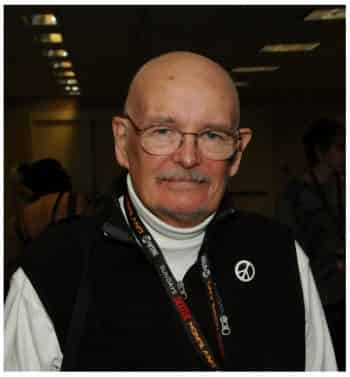Bonus
-
Forcing creativity, creating new conventions
Marc Alan Fishman points out that: “[Writers] can’t simply let their comic character live and die with the times. They must constantly be in a cycle or dramatic repartee with one another. They must converge on mighty battlegrounds. They must make odd alliances. They must recalibrate, reinvent, and redefine their very being every few months. The moment they stop, the attention is drawn elsewhere.” (“Wanted, Dead or Alive… Not Both,” www.comicmix.com, May 3, 2014). And in this vein: “The culture of superhero comics encourages repetition; Marvel and DC creators recycle tropes, story structures, and approaches to characterization. Inasmuch as readers approach these comics with certain expectations—to see the last-minute return of a believed-dead hero, the dissolution and reunion of a superteam, etc.—this isn’t necessarily a problem.” (Greg Hunter, “Batman: Death of the Family,” www.tcj.com, February 12, 2014.). And so, “idea generation is the true value of the end product. […] But if we chain the hands of our creative teams and force them to work within the confines of a limited universe, we’re removing the possibility of those teams then creating something truly memorable.” (Marc Alan Fishman, “Captain America, Thor, Changes, Stunts…,” www.comicmix.com, June 26, 2014). Thus the problem isn’t recycling concepts but developing them poorly. “You can figure out the rest. It was mind blowing to see how fandom had embraced Bucky, which more than anything, had to do with the magnificent story that Ed Brubaker was writing.” In a universe without the constraints of life or death, it’s execution that makes concepts—even recycled ones—stand the test of time.
-
Long-term writing stings
According to Matt D. Wilson: “Certain generations of comics readers remember their favorite runs as especially long, and the comics of their youth being particularly focused and author-driven. But the truth is that long runs have always been pretty special and fairly rare. Now, maybe the short runs are getting shorter.” (“Perception Vs. Reality: ‘Long Writer Runs’ At Marvel & DC,” comicsalliance.com, January 23, 2014). Is this a problem? Ultimately, we want to read good stories. So if authors are not able to offer us any, it’s normal that an editor will want to replace them. But a replacement author will want to make a mark, and will often resort to high concepts to strike the imagination (Juliet Kahn, “Putting the Sidekick in The Suit: Black Captain America, Female Thor, and the Illusion of Progress,” comicsalliance.com, November 24, 2014). But these ploys will rarely grab us like the original, or have continuity with the essence of the character. The downside is that this leads to sudden changes in a character’s personality. But an author who has the luxury of being able to work on a title for many years can develop ideas much more patiently.
-
How far to go with character descriptions?
We came across this review of issue 7 of the Miracleman series that we found quite compelling:
Overall, the primary content of this issue is still quite excellent. Once again Cream is a confounding influence and the art does see a decline in quality, but the story is still very engaging and I’m honestly intrigued to see how Moran gets himself out of this mess. You see, Gargunza used the term “Abraxas” to turn Miracleman back into Moran. The word keeps him in his human state for an hour. He and Cream are then given a head start to run away from Miracledog before he is sicced on them. Cream hands Moran a gun before running off to be decapitated by Miracledog. The issue ends on a very human and very scared Moran confronted by the beast. I have no idea how he can save himself but I’m excited to find out. » (Michael Brown, “Marvel’s Miracleman # 7: Enter Chuck Austen,” comicbook.com, June 6, 2014)
There is a fine line to walk between giving a full character profile and maintaining an aura of mystery that leaves some interpretation to the reader. It’s a very fine line. Personally, we don’t like to over-explain the psychological choices of our characters, but we don’t want to neglect concrete actions either. The line is even harder to identify since we don’t always know where certain actions will lead. For example, at the start, Fabien didn’t want to sleep. But later, we saw that his former teammates were appearing in his nightmares. Then he started hearing voices. These events were layered one on top of the other without advance planning. However, they culminated in the story “Psychological Warfare.” While authors may be surprised by the twists and turns they themselves create, they should not leave the reader struggling to keep up.
-
Meta-references in superhero movies
-
Writing tips
We don’t want to offer writing tips—we still have too much to learn—but we love reading tips. Dennis O’Neil (“Dennis O’Neil: Mark Twain and the Seven Basic Plots,” www.comicmix.com, April 24, 2014) presents a pretty exhaustive list of tips. We like the last one: “Employ a simple, straightforward style.” No one is likely to give you an award for such a style but at least it will have the advantage of being in synch with your characters’ level of speech.







